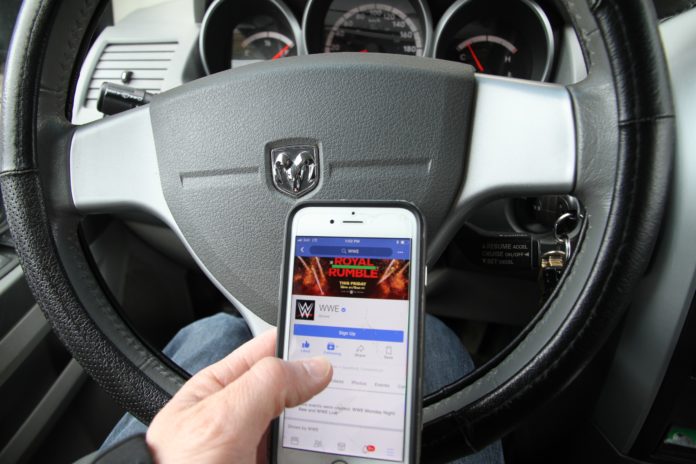Distracted driving has been an ongoing concern for years, however, with cell phones now an extension of one’s arm, drivers are increasing their chances of a tragic accident from undue care and attention.
The fee has increased if you are to be busted driving while distracted and now; it is not just cell phones that will cause a hefty ticket.
For reference, an average speeding ticket is $109.00 and for excessive speeding your vehicle is towed and the ticket is $256.00. After the ticket has been paid, then the point system comes into effect which is another fee from the Crown later on your date of birth (Happy Birthday, here is a bill).
With distracted driving, it is a far more expensive slam to the wallet. What constitutes as distracted driving? While one could assume (and be correct in this assumption) that cellphones are considered distracted driving, a dog on a lap, using your GPS, or eating a hamburger is also under that umbrella.
Staff Sergeant Kurt Grabinsky informed the Revelstoke Current that while these are technically distractions, the local RCMP due use discretion in these matters and are predominantly concerned about those using their cellphones. In fact, Grabinsky noted a time in which he was trying to pull over a driver for distracted driving, yet he did not pull over because he was staring at his cellphone.
Through studies they have done, distracted driving is almost the equivalent of being impaired by alcohol.
“They can put someone on the track, having a person trying to execute certain tasks while texting and talking on the cellphone, they will observe the behaviour and it is almost on par with distracted driving.” Grabinsky claimed.
So what is the cost if you are busted?
The first ticket is $368.00 + 4 points. One year later on your birthday, the 4 points equates to over $100.00. A second ticket is over $500 and a third ticket is over $800. Continual infractions could cost drivers up to $2000.
“This is not about quotas. We do not have quotas, for this- or anything for that matter. Our goal is to make the roads safer. If a child runs out and they are unable to stop or see the child, I don’t care what the ticketing offense is; it’s the harm or injury to that child that is far more important than the petty conversation about where you are meeting for lunch.”
When asked about the quota system, Grabinsky clarified that he does not have a quota system in place for himself or his staff.
“I have no expectation of my staff to do “X” number of tickets, I need them to be out there and interactive with “X” number of people.”




